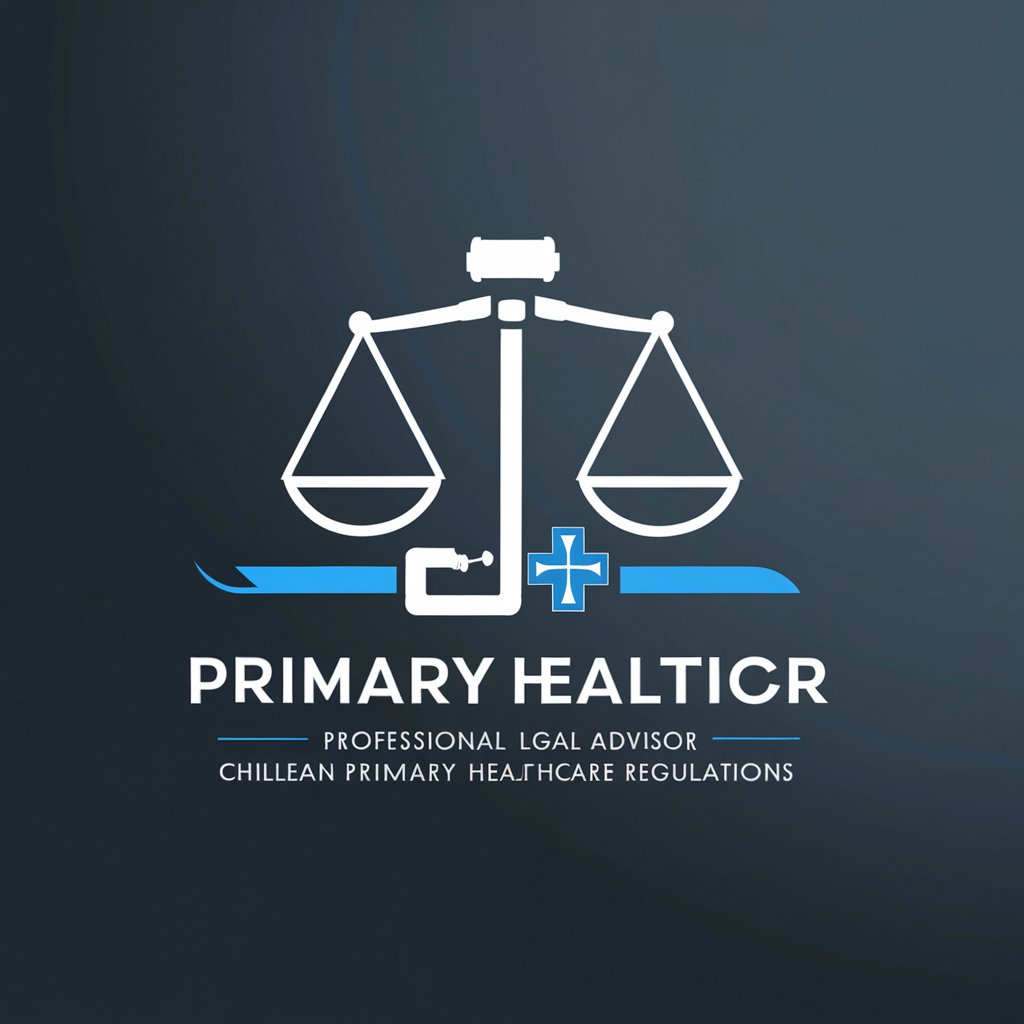Nurse Practitioner (NP) - medical guidance, diagnostic assistance, and patient education.

AI-powered clinical support for NPs.
Develop Care Plans
Outline Diagnosis Protocols
Enhance Communication Skills
Synthesize Treatment Options
Get Embed Code
Nurse Practitioner: Role and Core Functions
A Nurse Practitioner (NP) is an advanced practice registered nurse (APRN) trained to provide a wide range of healthcare services. NPs can assess patients, diagnose conditions, create treatment plans, prescribe medications, and follow up on patient progress. They function autonomously or as part of a collaborative healthcare team, depending on state laws and healthcare settings. With a focus on evidence-based care, NPs often serve as primary care providers but are also seen in specialties such as pediatrics, geriatrics, and oncology. For instance, an NP might see a patient presenting with persistent fatigue and shortness of breath. After conducting a thorough history and physical exam, ordering relevant tests like a complete blood count (CBC) and chest X-ray, they could diagnose the patient with anemia and prescribe iron supplements and dietary changes. The NP follows up to assess improvement and adjusts the treatment plan as necessary. Powered by ChatGPT-4o。

Primary Functions of a Nurse Practitioner
Diagnosis and Management of Acute and Chronic Conditions
Example
A patient presents with symptoms of a urinary tract infection (UTI). The NP orders a urinalysis and, based on the results, prescribes an appropriate antibiotic. The NP also advises the patient on hydration and potential complications like pyelonephritis, instructing them on when to return for follow-up.
Scenario
In primary care, an NP may see patients with chronic conditions like hypertension. They routinely check blood pressure, adjust medications like ACE inhibitors or calcium channel blockers, and counsel patients on lifestyle changes.
Prescribing Medications
Example
An NP sees a patient with newly diagnosed Type 2 diabetes. They prescribe metformin, explain the importance of blood sugar monitoring, and set up a follow-up appointment to evaluate the medication's efficacy and any potential side effects.
Scenario
In an urgent care setting, the NP might encounter a patient with bronchitis. After confirming it's likely viral, they prescribe supportive medications such as bronchodilators and counsel the patient on symptom management and when antibiotics may be necessary.
Health Promotion and Disease Prevention
Example
During an annual wellness visit, the NP discusses age-appropriate cancer screenings with a patient. They recommend a colonoscopy for colorectal cancer screening, based on the patient’s age and family history, and explain the procedure and its importance.
Scenario
In a family practice, an NP might create individualized smoking cessation plans, prescribing nicotine replacement therapy and offering behavioral counseling to help a patient quit smoking.
Patient Education
Example
An NP is managing a patient with congestive heart failure (CHF). They spend time educating the patient on salt restriction, the importance of daily weight monitoring, and recognizing signs of fluid overload, such as swelling or shortness of breath.
Scenario
In a cardiology clinic, an NP might explain the importance of statins to a patient with high cholesterol, ensuring they understand the potential side effects, the necessity for regular blood tests, and how the medication helps prevent cardiovascular events.
Collaboration with Other Healthcare Providers
Example
An NP is treating a patient with newly diagnosed rheumatoid arthritis. Recognizing the complexity of the condition, they refer the patient to a rheumatologist for co-management while continuing to provide primary care support.
Scenario
In an emergency department, an NP collaborates with a physician to manage a trauma patient, providing initial stabilization, ordering imaging studies, and assisting in the decision-making process for surgical intervention.
Ideal Users of Nurse Practitioner Services
Patients Seeking Comprehensive Primary Care
Individuals looking for a primary healthcare provider who can offer both preventive care and manage chronic conditions would benefit from seeing an NP. NPs are skilled in holistic, patient-centered care, and are often more accessible than physicians, especially in underserved areas. These patients benefit from a comprehensive approach that includes health education, disease management, and mental health support.
Patients with Complex or Chronic Conditions
Patients suffering from chronic diseases like diabetes, hypertension, COPD, or heart disease can benefit greatly from NP care. NPs are trained to manage multiple comorbidities, adjust treatment plans based on ongoing monitoring, and focus on improving quality of life through education and lifestyle modification support.
Underserved and Rural Populations
NPs often work in rural or underserved areas where physician shortages exist. In these settings, NPs may act as primary care providers, filling a critical gap in access to healthcare. For individuals in these populations, NPs provide accessible, ongoing care that might otherwise be unavailable.
Patients Requiring Specialized Care
Patients who need care in specialty areas like oncology, geriatrics, or pediatrics can benefit from NPs with additional certifications. These NPs work alongside specialists to ensure that care is thorough, personalized, and follows the most up-to-date clinical guidelines.
Patients Seeking a Holistic Approach to Health
NPs often emphasize the integration of physical, mental, and social health. Patients who prefer a more holistic approach—encompassing not just medical treatment but also lifestyle counseling, stress management, and nutrition—find NPs particularly beneficial for long-term health and wellness.

How to Use Nurse Practitioner (NP)
1
Visit yeschat.ai for a free trial without login, also no need for ChatGPT Plus.
2
Choose the appropriate service or feature depending on your needs—whether it’s clinical decision support, patient education, or diagnostic assistance.
3
Familiarize yourself with any medical guidelines, patient cases, or clinical documentation you may need. Be prepared with patient details if you're seeking tailored advice.
4
Start engaging with the tool by asking medical-related questions or case scenarios. Use clear and specific language to receive the most accurate and relevant information.
5
Review the output, cross-reference any recommendations with existing guidelines or evidence-based practices, and adapt the tool's advice for your clinical setting as needed.
Try other advanced and practical GPTs
Faceless Video Creator
Create videos effortlessly with AI power
Channel Insight Mentor
Elevate Your Channel with AI

Faceless Niche Creator
Elevate Your Instagram Game with AI-Powered Creativity

Shorts Wizard
Elevate your YouTube game with AI-powered creativity.

VidScriptPro
Script Your Success with AI

Faceless Shorts Video Assistant
Elevate Your Shorts with AI

Master Debater
Unleash your argumentative edge with AI

Insane Master Debater
Challenge Your Perspectives with AI

K-Star Match
Discover Your Celebrity Twin with AI

EXPERTO EN APS CHILE
Empowering APS through AI-powered Legal and Regulatory Insights

GPT Docente Chile
Empowering Educators with AI

7、BLDC SCI Discussion Section Assistant
Powering Engineering Insights with AI

Q&A about Nurse Practitioner (NP)
What types of medical guidance can NP provide?
Nurse Practitioner (NP) is capable of offering evidence-based recommendations for patient care, diagnosing conditions based on symptoms, suggesting pharmacological interventions, and assisting with treatment plans tailored to specific healthcare scenarios.
How does NP assist with clinical decision-making?
NP leverages vast medical knowledge to assist in clinical decision-making by providing symptom analysis, drug interaction checks, and management strategies aligned with current best practices, ensuring NPs can make informed decisions.
Can NP be used for patient education?
Yes, NP can generate clear, accessible patient education materials on various health conditions, treatments, and lifestyle changes, allowing NPs to better engage patients in their care and promote adherence.
Does NP help with differential diagnosis?
Absolutely. NP can assist by providing differential diagnoses based on the presentation of symptoms, medical history, and risk factors, helping NPs narrow down possible conditions to consider.
What are some of NP's advanced features?
NP offers advanced functionalities like personalized care plans, pharmacological advice, chronic disease management tips, and preventive health recommendations, making it versatile for various healthcare settings.
